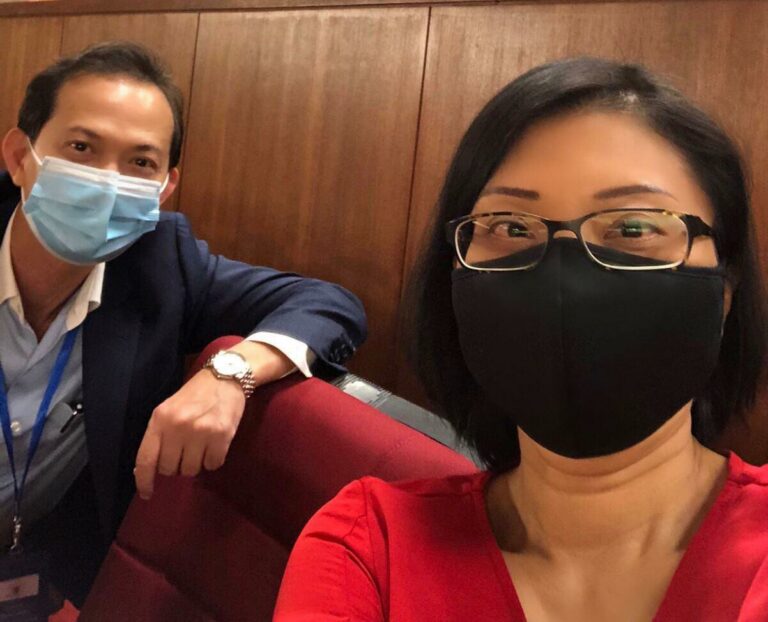By Toh Han Shih
There can be room for improvement of the government’s relief measures for Singaporeans and businesses beleaguered by the ongoing COVID-19 pandemic, said Non-Constituency Member of Parliament (NCMP) Hazel Poa.
Since COVID-19 made itself felt in the Lion City early this year, the government has committed roughly S$100 billion in relief measures.
While the government allocated a large sum of money for these measures, they would have been more beneficial if they were more targeted at those who really need it, Ms Poa, a member of the Central Executive Committee (CEC) of the Progress Singapore Party (PSP), told the Palm.
Not everyone or every sector is affected equally by COVID 19, said Ms Poa. “Many of the measures take a broad-brush approach and hence some of the money would go to those who may not need it. For example, companies in the financial and IT industries continue to do well. I feel greater refinement in our relief measures would have ensured better use of the money.”
At the opening of Singapore’s 14th Parliament on 24 Aug, President Halimah Yacob said the government recognised the pressure which COVID-19 has put on the nation’s workforce. The President said jobs will remain the government’s top priority in the next few years.
In her maiden Parliamentary speech on 2 Sept, Ms Poa noted several companies have returned their Job Support Scheme (JSS) payments, and the government is urging all other companies that do not require this subsidy to do likewise. Her speech urged a review of JSS to explore clawing back JSS from companies that are profitable and companies that continue to pay million-dollar executive salaries, and re-channel these resources to where they are needed more like in unemployment support.
Although it is too late to do anything about the JSS payments that have already been disbursed, the government can impose conditions for the additional JSS recently announced, Ms Poa suggested. JSS for citizens and permanent residents should be differentiated to underline the difference in the government’s obligations to these two groups, she added. “The first duty of any government is always to its own citizens.”
While doing outreach to understand the concerns of Singaporeans, Ms Poa shared with the Palm that employment ranked the highest. “We listened to worries about losing jobs, unhappiness at the extent of employment of foreigners in jobs that can be done by Singaporeans and sometimes get requests to help find jobs.”
In Parliament, she cited official Singapore data that employment in the country decreased by 131,500 in the second quarter.
“Further job losses are thus expected. Under such circumstances, most will take longer than 3 months to find new employment,” Ms Poa warned in her speech.
She also discovered during her outreach that Singaporeans faced difficulties in meeting living expenses, Ms Poa told the Palm.
Earlier this year, a survey by OCBC, a leading Singapore bank, found 70 percent of the respondents did not have enough savings to last more than 6 months, Ms Poa said in Parliament. “We need to enhance the COVID Support Grant to offer financial assistance for a longer period of time.”
Another possible way to help families cope with the financial stress caused by COVID-19 is to allow members of the Central Provident Fund (CPF) who have lost their jobs to borrow from their own CPF accounts, she added.
Although the CPF system works well for many Singaporeans, “the fact that these savings are being withheld for their future needs is scant comfort in the face of immediate distress. Coupled with the later withdrawal age and steadily increasing minimum sum, it is fuelling dissatisfaction or even mistrust in our CPF system.”
The government should explore the option of indexing CPF Life payments to inflation, with the inflation adjustments paid by the government, Ms Poa suggested in Parliament. “If inflation is rampant, then retirement funds saved up in the early years would be inadequate.”
She opined that expecting every Singaporean to fully fund his or her retirement may not be feasible for many. Ms Poa then suggested the government explore a hybrid system, where individuals build up their own retirement sums, and the government steps in after their retirement to help them cope with inflation.
“This pandemic is like a tide rolling out, exposing our vulnerabilities previously under the surface. We need to muster the courage to have an honest evaluation of where we are in the work-in-progress we call the Singapore story. We need to keep an open mind and be prepared to tackle sacred cows,” said Ms Poa.
She told the Palm that she will continue to raise issues affecting the employment opportunities for and employability of Singaporeans, wage policy for Singaporeans to ensure they are able to cope with the high cost of living, and stronger social policies to reduce inequality.

